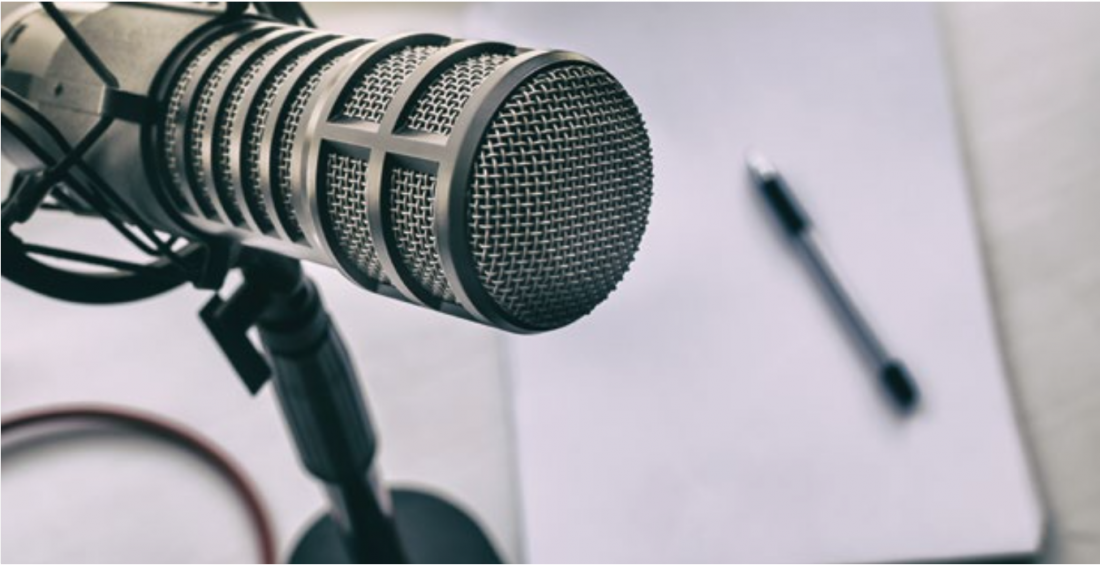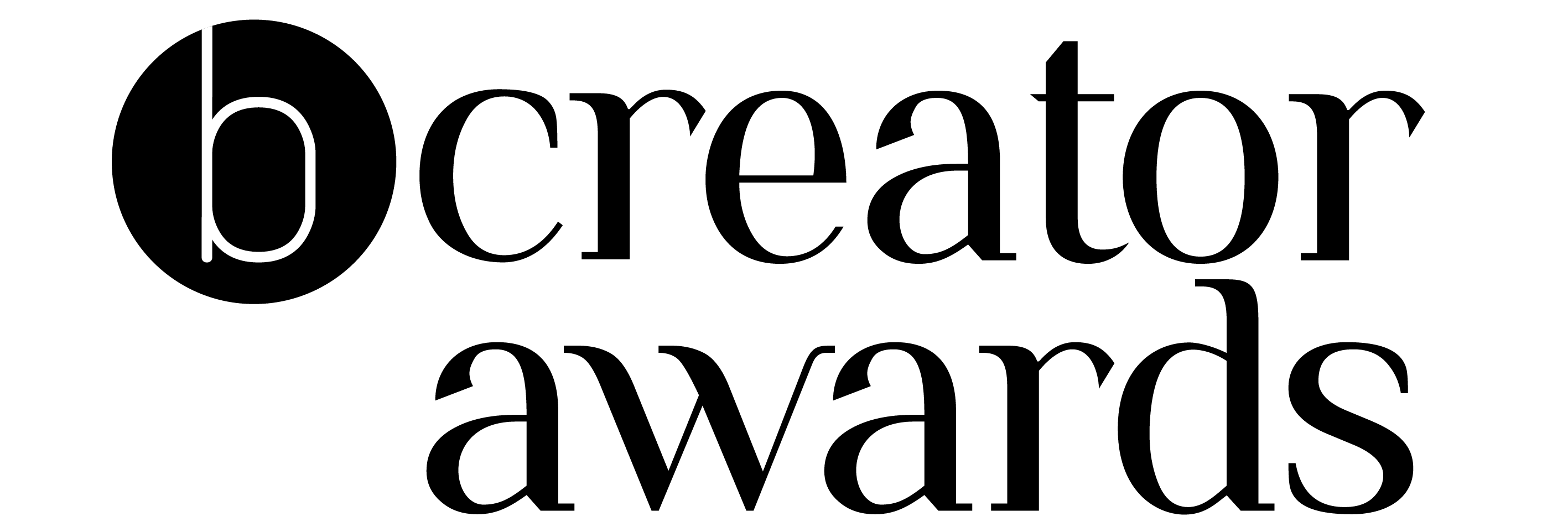Podcast host of Conversations from Our Days Kate O’Sullivan has seen a lot of change in eight years of podcasting. As a medium, podcasting allows online creators to speak directly to their audiences, meaning that hosts are able to address their audience in an immediate and almost revolutionary way.

I started the first version of my podcast over eight years ago. During long days of commuting, I would turn to podcasts as a way to pass the time. When I fell into podcast listening, I discovered niche audio broadcasts about all kinds of topics relating to my hobbies.
In those early days, the audio for many of the podcasts I listened to wasn’t always brilliant and production values were often less than slick. Still, I forgave a lot because for the first time I was finding hours worth of content about the things I truly loved and cared about. Back then, finding new podcasts was a pretty big commitment of keyword searches on iTunes and hoping you didn’t run out of storage when you hit download.
Eight years on, podcasting seems to have developed to a much more accessible place with RAJAR’s radio audience survey (Spring 2018) finding that six million adults access a podcast in an average week. More and more podcast catchers exist, scooping up RSS feeds and streaming them to whatever device you wish to listen to them on. Podcasts are now a mainstream medium, and yet their roots in direct conversation around topics of personal passion remain fundamentally entwined within their growth.
In November 2018, the Wall Street Journal ran a story about how streaming giants Spotify and Pandora were focusing on podcasts in an attempt to capture more of their consumers’ listening time. This shift reflected a growing demand for podcasting as a medium for creative content (and companies wishing to capitalise on it). Shows such as Serial and Griefcast have had an explosive impact, with their content being discussed as much as the latest reality TV show. They are both shows that explore taboo topics and through a series of episodes, murder and grief are presented to audiences in a way that encourages us to discuss things that are often difficult (and painful) to talk about.
The fact that bloggers are increasingly exploring podcasting is further proof of its appeal to creatives. Last year Chidera Eggerue (The Slumflower) was featured prominently on a late night series of sessions, available to download via BBC Women’s Hour. Chidera’s sessions were as potent as her social media and blog posts
and reached new audiences that might not have otherwise discovered her. As a queer woman, these changes feel exciting and energising to witness. I’m all too aware that more often than not the voices on mainstream broadcasts are homogenous and lacking in any meaningful diversity. Sometimes even the accents we hear feel like there’s little room for opportunity outside of London.
Speaking to the creator behind Gender Reveal podcast, Molly Woodstock, I found a similar desire for more diverse representation in broadcasting. Molly features interviews with LGBTQIA+ artists, activists, and educators as well as answering listener questions and analysing current events in an attempt to explore gender in a more inclusive and sensitive way.
“My top priority is always to create a space where a diverse community of non-binary folks and other trans folks can feel visible, centred, and respected”, they explain.
This is the joy of podcasting: creating a series of audio episodes that speak very clearly to an audience that craves it rather than justifying its market value to advertisers.
“Trans-related media is rarely created by and for non-binary/trans folks, and I wanted to change that, creating a space where we can move past the endless loop of ‘Trans 101’ and into the more nuanced and informed gender conversations that queer and trans folks have every day”, says Molly.
It would seem that podcasting is a strong contender for removing a lot of barriers when it comes to telling the stories of non-binary and transgender people.
Imriel Morgan, of The Wannabe podcast, feels that podcasting allows creatives to build an audience who are genuinely interested in, and supportive of, their journey.
“I think listening to a podcast is a very active and intentional act, you’re engaging with the people in your ears. It’s a great way to build a community because it’s so deliberate, you rarely get people listening to you that hate you. So you gather a great community of supporters.”
In our current climate of pitting high profile guests against one another to win ratings and clicks on TV talk shows, this is perhaps a poignant lesson about the uniting force that podcasting can encourage.
Radical Podcasting
Audio is a much more intimate space in which to explore radical and thought- provoking ideas. The listener has only your voice for information, and perhaps a little music or sound. In this way, podcasting seems a much easier way to explore hard to navigate ideas and topics with audiences who have previously not engaged with such material.
What’s more, it’s not just explicit conversations about diversity that means the medium is more inclusive. Those creating shows come from a rich background of life and experiences. Blog awards now regularly include podcast categories. Shout Out is a UK-based podcast network that hosts events and offers opportunities and resources for podcast hosts.
They’ve collaborated with platforms like Spotify to create opportunities, like their Sound Up bootcamp – tailored specifically to discover and nurture the talent of potential podcast hosts who identify as women of colour. The increased demand for podcasts and pickup of the medium has highlighted a need for these programmes. Shaping content to be more multi-faceted and boundary-pushing is the part of podcasting that feels exciting and innovating.
Creating New Opportunities
Grace Bonney, of Design Sponge, previously hosted a radio show on Heritage Radio Network called After the Jump. The name, and the mission, was all about expanding the conversations Design Sponge had started in shorter form online. On reflection, Grace feels that she made mistakes with this show, focusing too much on the end product at risk of not truly giving room for a person’s narrative and experience to unfold.
Drawing on these lessons, Grace now hosts the Good Company podcast, an audio version of the magazine publication of the same name. The focus remains on creativity and entrepreneurship, but with a more subtle approach in delivery. This time round, Grace is allowing conversations to flow without any expectation of the final product.
She says, “There are always common threads and universal lessons, but I don’t want to jump from point A to point Z anymore. I want to do a better job of unpacking all the messy parts of these stories and shine a light on them with greater compassion and a more open mind.”
Grace is making her own voice less prominent and focusing on a more inclusive guest list on the show. Opening up room for all to be part of the narrative and showing ourselves as multifaceted is easily achieved with podcasting because it allows a very direct interaction with a community and peers online. Audiences increasingly have an appetite for something less one dimensional in their daily listen and podcasts seem to be satisfying this appetite.
What’s more, podcast hosts are creating new opportunities for revenue. Platforms like Patreon allow creators to crowdfund their work. This means that podcast hosts are now freer than ever to create in the way that they wish, funded by their audience rather than advertisers. What’s more, a podcast doesn’t have the same limitations around advertising that platforms such as YouTube might. YouTube creators can boost their earning potential through adverts that run alongside the audience viewing experience.
However, censorship is a much discussed problem for those creating content on the platform. For example, transgender hosts have had their work flagged regularly by hate groups and have had their channels pulled and their revenue streams (and audiences) disappear overnight. This is much less of a problem within the podcasting world, making it a better medium for marginalised groups.
A More Egalitarian Option
One of the big advantages of hosting a podcast is the lack of barriers to creating one. Podcast platforms are some of the more affordable ones, and audio can be captured on free software with mics picked up cheaply second hand.
Hosts can edit from home and make use of group conference software, like Skype, to conduct interviews. Grace Bonney explains, “The barrier to podcasting is one of the least difficult to break through, aside from blogging. We don’t have a boss to tell us what we can and can’t talk about.”
A voice that stands alone from the bias of an editor is a powerful tool and one not lost on me as a queer creator. It means I can make my own editorial choices in episodes exploring topics, like family, that means I see my own reality reflected.
Podcasting encourages a plurality of voices by its very nature – panels and interviews with long form explorations of topics are amongst the most popular. Hearing from a mix of voices that can interject and shape language around a topic is an exciting possibility. Podcasting combines innovation in content creation with an intimacy that other platforms can’t quite achieve.
This means that people’s lived experiences can be delivered in a nuanced way that makes it easier for people to step into. It’s meant that for me as a podcaster, I have been able to talk in a very frank way with my community about the stigma surrounding my sexual identity and invite others into that space, which can help us move forward in a more inclusive and diverse way. Online creatives have always been innovative and I would argue that podcasting is helping us ride the crest of that wave.
